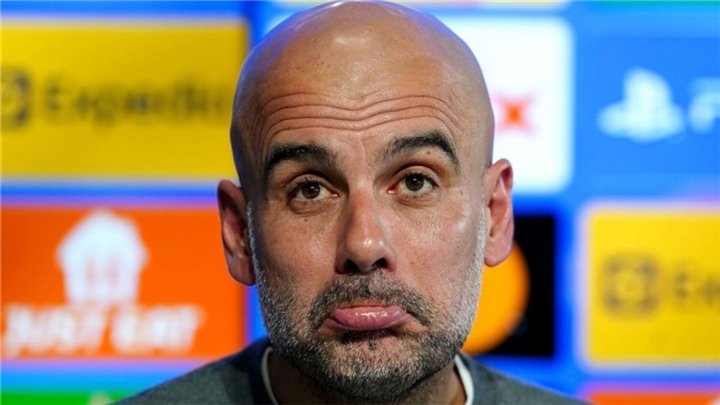
It seemed fitting that Manchester City should come storming back from the brink the way they did, Ilkay Gündogan soaring like a small, technically adept avenging phoenix to bullet his header very carefully into the top corner of the Aston Villa net. This is how they do this stuff around here. Not with more heat, more blood, more chaos; but with cleaner lines, greater clarity, a red mist of extreme precision.
Within six minutes of that opening act Pep Guardiola’s champions had completed the most beautifully orderly emergency comeback in English footballing history. And there is something genuinely fearless about being able to play football this way, to become more not less yourself when the pulse is pounding, time running short, the world closing in at your back.
Related: Guardiola-Klopp tactical hybrid now dominates European football | Jonathan Wilson
It was fitting too that Gündogan, Guardiola’s first signing at City, should score the title-winning goal, his second of the game: and that Raheem Sterling and Kevin De Bruyne should be present pulling the strings, both of whom have been present for Guardiola’s entire span in England.
At the end of which, and for all the fine margins, this is the most definitive of title wins. City scored more goals, made more passes and had more possession than any other team in Europe’s top five leagues this season.
João Cancelo, Rodri and Aymeric Laporte made more passes than anyone else in the English top tier (Cancelo, an all-purpose influence, was also top 10 for tackles, dribbles and interceptions and 12th on shots at goal).
It has been a kind of total football, the domination of every metric, a sky blue wash applied across every surface of elite English football. At the end of which, this is also a good moment to take a breath. There is no suggestion Guardiola intends to leave when his contract expires next year, but some things will change now. Key players in this group are reaching their peak. Some will leave in the summer. Erling Haaland’s arrival suggests a different kind of rebuild in the offing.
And, looking back, the first six years of Guardiola at City have their own very distinct tone and texture. Zoom out a little to take in tactics, structure and ownership model, right down to the way full-blown internet tribalism has become an aspect of football fandom, and there is a fair case that Pep-era Manchester City is the single most transformative element in the modern history of English football.
Two things seem clear enough. First, this has been a dizzying success. Four titles in six years: even taking out the Premier League premium that says the thing that has just happened is the only thing that has ever happened, this is one of the great title-winning eras in English football history.
On the pure numbers Guardiola is now level with Kenny Dalglish and Herbert Chapman, one behind Matt Busby, two behind Bob Paisley, and, like everyone else, way back on Alex Ferguson’s 27-year total of 13.
Factor in the shortness of his span and the sheer intensity of his influence and Guardiola starts to look like something even more substantial. He is now part of a tiny group – Chapman, Busby, Bill Shankly and Arsène Wenger spring to mind – whose success has also changed the way football is played, coached and understood in this country.